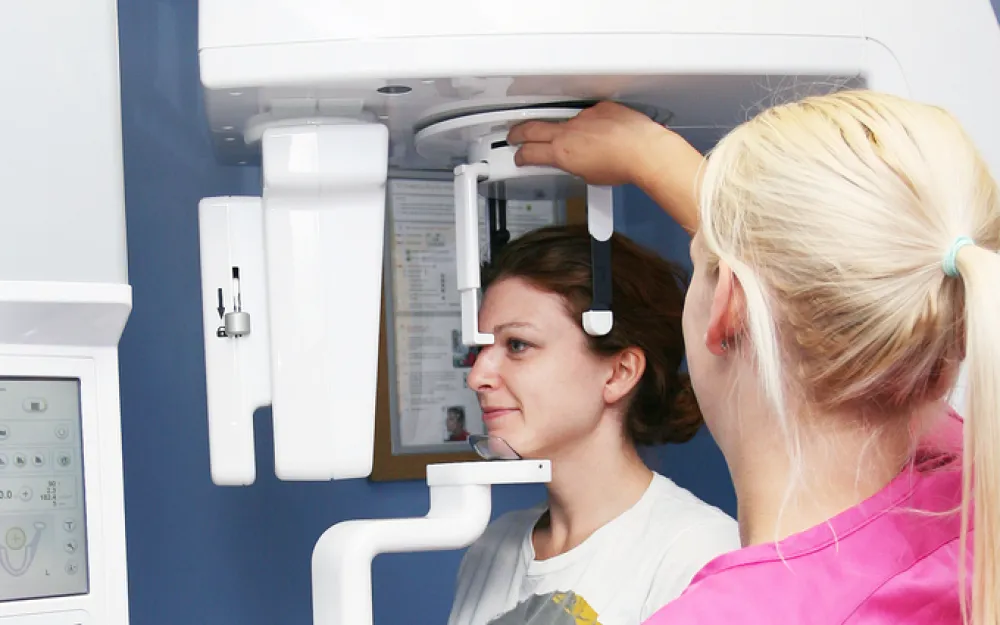When and Why We Use Our CBCT Scanner at Norfolk Dental Specialists

If you are considering dental implants, you may have heard of a CBCT scanner. We thought it might be useful to write a short post about what it is and how it helps us to plan your implant treatment.
What is a CBCT scanner?
CBCT stands for “Cone Beam Computed Tomography” and ours is a state-of-the-art scanning machine. We use it to produce precise, high resolution 3D images of your mouth including the teeth, jaws, soft tissue and bones – all with high levels of detail.
Unlike a standard X-ray, which only shows a 2D view of your teeth, a CBCT scanner generates a 3D view of your entire jaw. This allows us to measure the bone depth, width, density and condition of your jawbone. It also shows us the location of important structures such as nerve canals and sinus cavities².
Why do we use a CBCT scanner for dental implants?
The information provided by the scan is essential for planning the optimal placement of a patient’s dental implants. It helps us to determine whether a patient’s bone structure is suitable for implants, and the precise mapping of the structure of the mouth allows our dental specialists to avoid any complications during the placement procedure.
At Norfolk Dental Specialists, we always use a CBCT scanner as part of our comprehensive implant assessment. We believe that this technology helps us to provide you with the best possible care and results.
Which other treatments might involve a CBCT scan?
A CBCT scan is not only useful for dental implants, but also for other dental treatments that require detailed information about your mouth and jaw. For example we might use the scanner prior to treatments such as:
- Wisdom tooth extraction: A CBCT scan can help us to see the position and shape of your wisdom teeth and how they are affecting your other teeth and nerves.
- Root canal therapy: To help us to locate and treat infected or damaged roots and canals in your teeth.
- Periodontal treatment: For use in identifying gum issues and detecting the lesions that indicate serious gum disease.
What happens when you have a CBCT scan?
A CBCT scan is quick and completely painless. You simply remain still while the scanner rotates around your head. The scan takes less than a minute and the whole appointment lasts about 10 minutes. You do not need any injections or special preparations for a CBCT scan.
The amount of radiation from a CBCT scan is very low and unlikely to cause any long-term harm. It is much lower than a conventional CT scan and similar to the background radiation that you are exposed to in everyday life. However, if you are pregnant, please let us know prior to booking in for a scan.
If you have any questions about CBCT scans or dental implants, please do not hesitate to contact the team at Norfolk Dental Specialists. We are always happy to help. You can call our reception on 01603 632525 or email info@ndspecialists.uk


